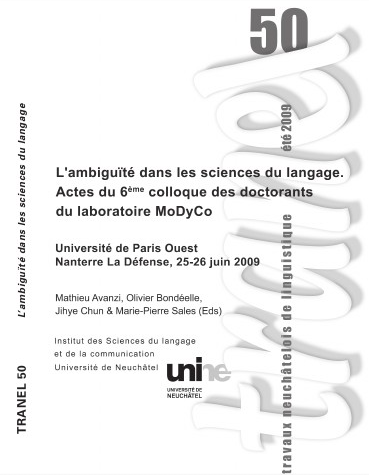Ambiguïté lexicale et apprentissage de la lecture en langue étrangère: quelle aide le dictionnaire bilingue peut-il y apporter?
DOI :
https://doi.org/10.26034/tranel.2009.2864Résumé
This study approaches the potential ambiguity of lexical units when reading in a foreign language (FL) in the beginning of the learning process. The lexical ambiguity, unusual in written text, can arise in this case due to the lack of knowledge of a foreign language and/or due to the use of a bilingual dictionary (BD). This dictionary can show the meanings of the units, and help to eliminate potential ambiguities of the polysemic nature of lexicon through different strategies. But, which strategies would be most appropriate to beginners? i.e., which information should a BD contains in order to help reading, while facilitating the study of a FL? This is the main question this study aims to answer based on considerations primarily related to teaching and learning to read in a foreign language, and then to the use of a BD. The focus is on French-to-Brazilian Portuguese dictionaries and on the difficulties a Brazilian student faces when studying ''French for Specific Purposes''.Téléchargements
Publié-e
01-06-2009
Comment citer
Loguercio, S. (2009). Ambiguïté lexicale et apprentissage de la lecture en langue étrangère: quelle aide le dictionnaire bilingue peut-il y apporter?. Travaux neuchâtelois De Linguistique, (50), 133–145. https://doi.org/10.26034/tranel.2009.2864
Numéro
Rubrique
Article thématique


